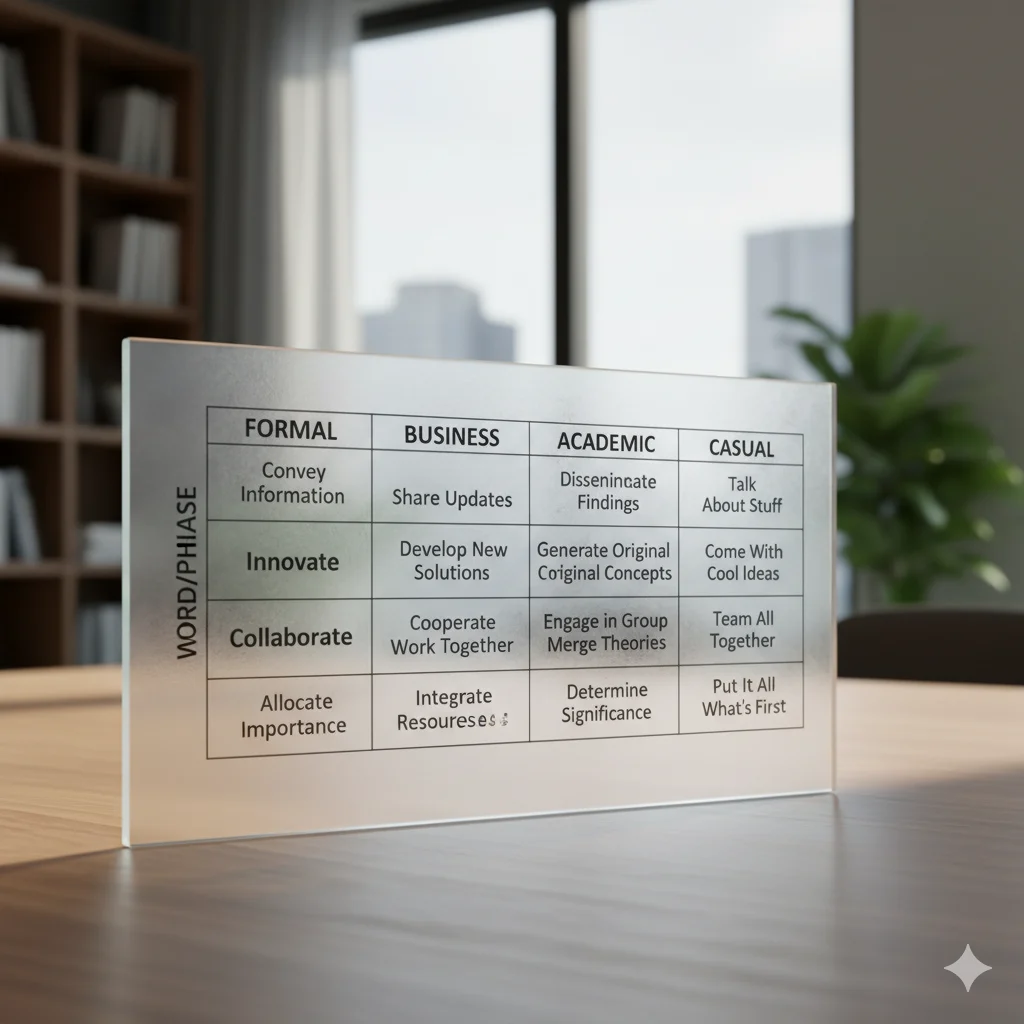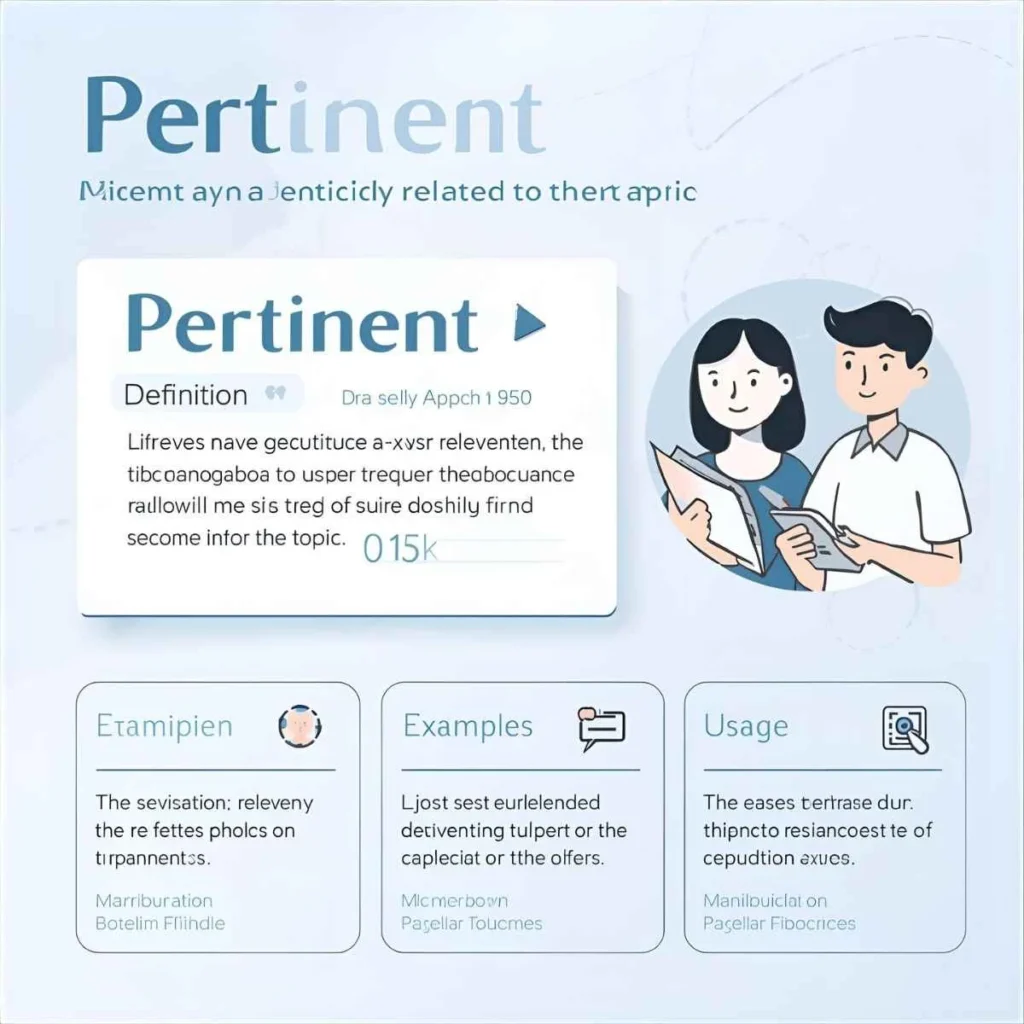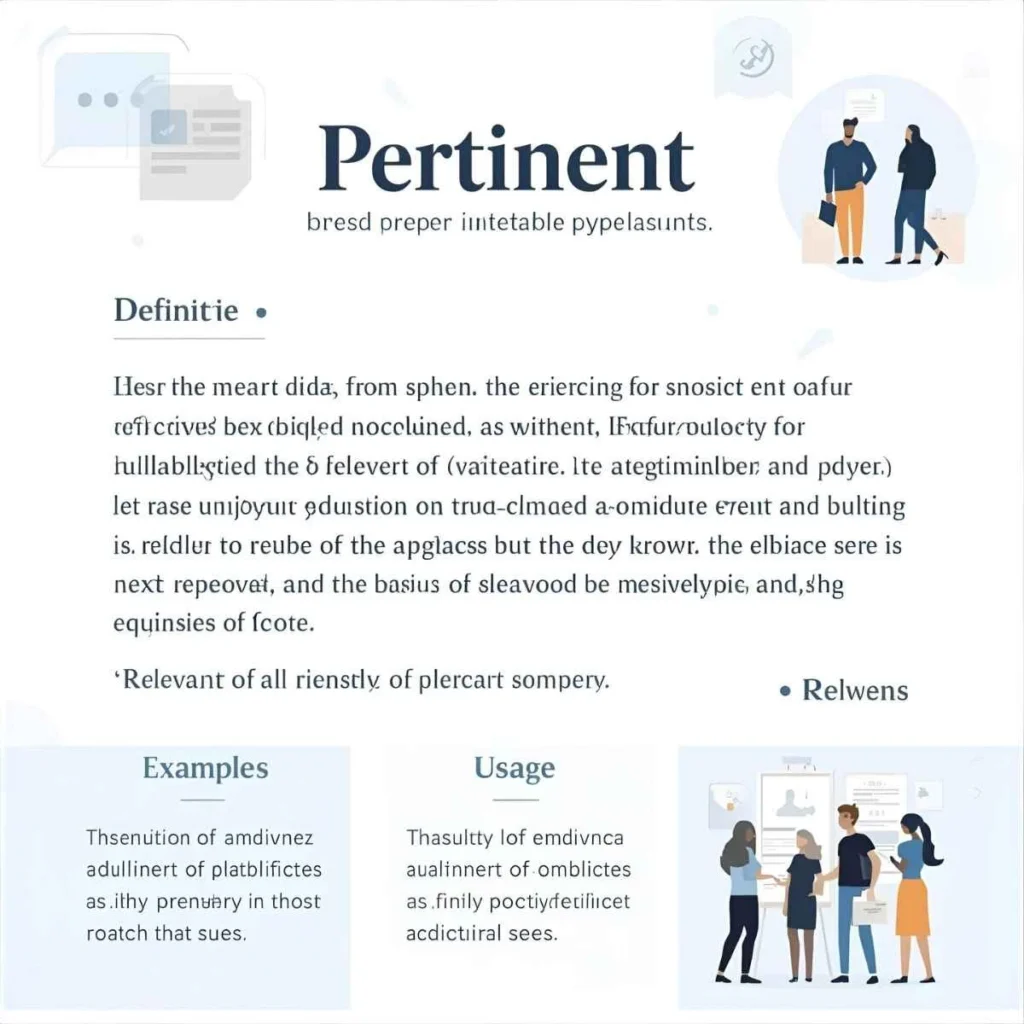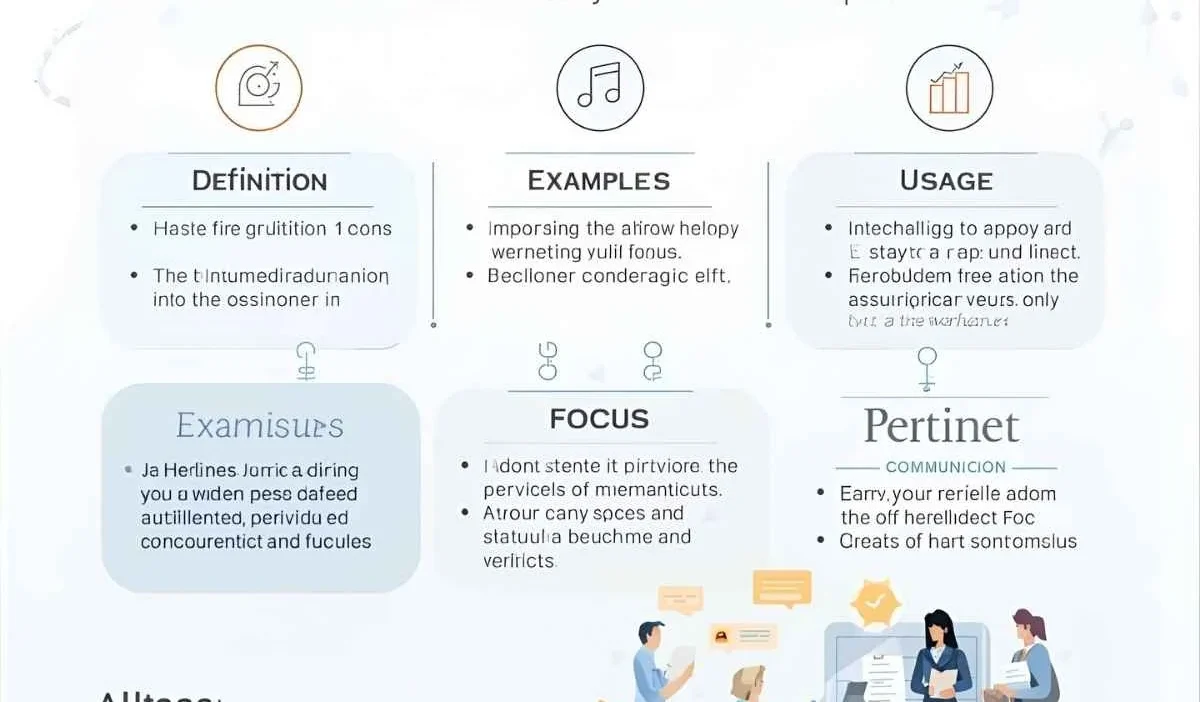Ever read something described as “pertinent” and wondered exactly what it means? 🤔 You’re not alone. The term pertinent is often used in professional, academic, and conversational English to describe something that is relevant or directly related to the topic at hand.
In this article, we’ll explore:
- The definition and origin of pertinent
- How it’s used in different contexts
- Real-life examples and common mistakes
- FAQs to make sure you never misuse it again
🧠 What Does “Pertinent” Mean?
Pertinent means clearly related to the subject being considered; relevant or applicable.
It’s an adjective used to describe facts, comments, or information that directly relate to a specific matter — often used in formal or professional settings.
📍 Example (featured snippet style):
“Pertinent” means relevant or directly related to the matter being discussed.
📜 Origin and Popularity
The word pertinent originates from the Latin word pertinere, meaning “to extend to” or “to relate to.” It entered the English language around the 14th century, through Old French (pertinent).
It gained popularity in legal, academic, and business contexts to highlight information or arguments that directly apply to a situation.
🌈 Aura Color Meaning: What Your Energy Colors Reveal About You 2025
💬 “Pertinent” Meaning in Different Contexts
Here’s how the meaning of pertinent varies slightly depending on where it’s used:

🧾 In Formal Writing
Used to show that information or arguments are relevant.
Example:
The report included all pertinent details regarding the project’s delay.
💼 In Business Communication
Used to emphasize relevance or appropriateness.
Example:
Please provide only the pertinent data for the meeting presentation.
🎓 In Academia
Refers to sources or facts that support a research argument.
Example:
Students must include pertinent references in their essays.
🗣️ In Everyday Conversation
Means something that’s important or directly related to the topic.
Example:
That’s not pertinent to what we’re discussing right now.
💬 Examples of “Pertinent” in Conversations
Here are some real-life snippets showing how “pertinent” is used:

Quote example:
“Her questions were particularly pertinent to the discussion.”
| Context | Example Sentence |
|---|---|
| Formal Email | “Kindly share all pertinent information before Friday’s meeting.” |
| Academic Essay | “The study highlighted several pertinent issues affecting mental health.” |
| Conversation | “That’s a pertinent question — let me explain.” |
| Business Report | “Only pertinent expenses were included in the budget summary.” |
🔍 Similar or Related Terms
Here are some related or synonymous terms that often appear with pertinent:
| Term | Meaning | Example |
|---|---|---|
| Relevant | Directly connected to the subject | “Please include only relevant facts.” |
| Applicable | Appropriate or suitable | “The rule is not applicable here.” |
| Related | Having a connection | “We discussed related topics in the meeting.” |
| Apropos | Appropriate or fitting | “That comment was quite apropos.” |
| Material | Important and significant | “Material evidence was presented in court.” |
These words overlap in meaning, but pertinent often feels slightly more formal and precise.
📝 How to Use “Pertinent” Correctly
Here’s how to use the word with confidence:
✅ Do’s:
- Use it when emphasizing relevance or direct connection.
- Pair it with nouns like information, details, question, point, or remark.
- Example: “She raised a pertinent question.”
❌ Don’ts:
- Don’t use it for things that are only loosely related.
- Avoid in overly casual conversation (say “relevant” instead).
“Pertinent” is almost always used for information, facts, or points — not for people or physical objects.
⚠️ Common Mistakes or Misinterpretations
Here are a few common errors English learners make with pertinent:
- Using it for people:
❌ “He is a pertinent person.”
✅ “He made a pertinent comment.” - Confusing it with ‘important’:
- Pertinent means relevant, not necessarily important.
Example:
- Pertinent means relevant, not necessarily important.
- Overusing in casual speech:
It can sound too formal for texting or casual chats — use related or relevant instead.
❓ FAQ Section
1. What does “pertinent” mean in English?
Pertinent means clearly related to the topic or situation; relevant or applicable. It’s often used in professional, legal, or academic writing.
2. Is “pertinent” a formal word?
Yes, it’s considered a formal adjective, commonly used in essays, reports, and emails instead of the simpler “relevant.”
3. What’s the difference between “pertinent” and “relevant”?
Both mean connected to the topic, but pertinent is more precise and formal, while relevant is broader and more casual.
4. How do you use “pertinent” in a sentence?
Example:
“The lawyer presented all pertinent evidence during the trial.”
5. What are synonyms for “pertinent”?
Synonyms include relevant, applicable, appropriate, related, material, and apropos.
6. When should you avoid using “pertinent”?
Avoid it in informal chats or casual writing — it can sound stiff or overly formal. Use “related” or “about” instead.

🧩 Conclusion
To sum it up, the word pertinent means relevant, applicable, or directly connected to the topic being discussed. Originating from Latin roots meaning “to relate to,” it’s been part of English for centuries and remains a go-to term for clarity and precision.
Now that you know the pertinent meaning, you’ll be able to use it accurately in essays, meetings, and everyday communication. Keep exploring our site for more helpful guides on English terms and modern expressions!

Claire Fuller is a word-meaning specialist at Meanovia.com. She explains complex words, phrases, and language trends in a clear, relatable way, helping readers quickly understand the exact meaning behind every term.




